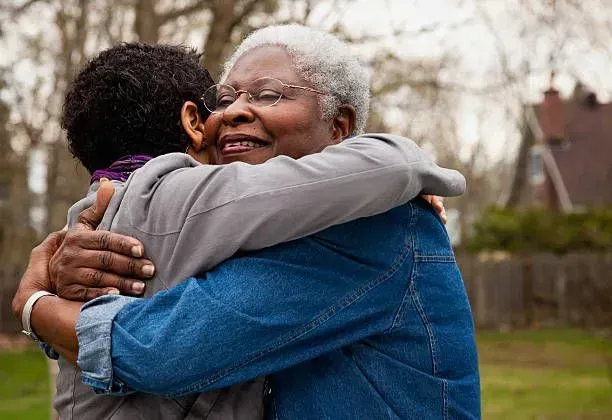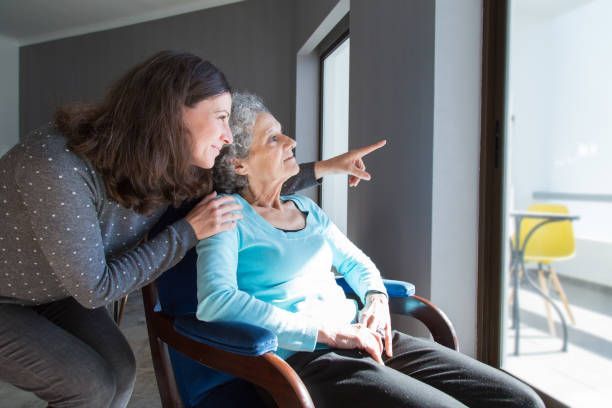Overcoming a Loved One's Reluctance to Home Health Aide Care
Overcoming a Loved One's Reluctance
to Home Health Aide Care
At 7 Day Home Care, we understand that a loved one's reluctance to accept the assistance of a home health aide can be challenging for families. It's not uncommon for individuals, especially seniors, to feel apprehensive about allowing someone new into their home or to perceive the need for assistance as a loss of independence. To overcome this reluctance, it's important to approach the situation with empathy, patience, and clear communication. Begin by involving your loved one in the decision-making process, discussing the benefits of having a home health aide, such as the added safety, companionship, and support that can enhance their quality of life. Reassure them that the aide is there to assist with specific tasks and respect their routines and preferences. It may also help to start with a trial period, allowing your loved one to gradually become comfortable with the aide's presence. At 7 Day Home Care, we carefully match our aides with clients based on personality, needs, and preferences, ensuring a positive and supportive relationship that helps alleviate any initial concerns. By addressing their fears and emphasizing the supportive nature of home care, families can help their loved ones feel more at ease with accepting the care they need.
7 Day Home Care is licensed by the New York State Department of Health to provide home care services in
Manhattan, Queens, Brooklyn, Nassau County, and Suffolk County, New York. To learn more about our home care services, please call 516-408-0034.

Allow Your Loved One to Express their
Concerns, Fears, and Hesitations Regarding In-Home Care
Introducing the idea of in-home care to a loved one can be met with resistance and mixed emotions. As we at 7 Day Home Care understand, this delicate process requires compassion, empathy, and a comprehensive understanding of your loved one's perspective. In this article, we explore some of the intricacies of handling a loved one's resistance to in-home care, offering some insights, strategies, and tips to recognize their feelings, overcome obstacles, and foster a supportive environment. We aim to give you some guidance through this challenging journey.
Understanding Your Loved One's Perspective About Home Care
- Empathetic Listening
The first step in recognizing your loved one's feelings is to listen actively and empathetically. Allow them to express their concerns, fears, and hesitations regarding in-home care. By acknowledging their emotions, you create a safe space for open dialogue.
2. Fear of Loss of Independence
Many seniors resist in-home care due to the fear of losing their independence. The idea of having a caregiver may evoke feelings of helplessness or reliance. Acknowledge their desire for autonomy and emphasize that in-home care is designed to support their independence, not undermine it.
3. Anxiety About Change
Change can be unsettling for anyone, especially seniors who are accustomed to their routines and surroundings. The prospect of a new caregiver or adjustments to their daily life can trigger anxiety. Validate their concerns and discuss how gradual changes can help ease the transition.
Recognizing and Overcoming Obstacles About Home Care
- Misconceptions About In-Home Care
Some resistance stems from misconceptions about in-home care. Address these misunderstandings by providing accurate information about the benefits of personalized care, tailored assistance, and the familiar comfort of their own home.
2. Lack of Familiarity
Resistance can arise from unfamiliarity with the concept of in-home care. Share success stories and testimonials from others who have experienced improved well-being and quality of life with compassionate in-home care.
3. Building Trust with Caregivers
A significant obstacle is establishing trust between your loved one and their caregiver. Involve them in the caregiver selection process and encourage open communication. Highlight that caregivers are there to enhance their lives, forming a bond based on respect and companionship.
Causes of Resistance to In-Home Care
- Fear of the Unknown
Human beings often fear what they do not fully understand. The idea of a stranger entering their personal space and daily routine can trigger anxiety. Discuss the caregiver's role, responsibilities, and the steps taken to ensure compatibility.
2. Perceived Loss of Privacy
Seniors may worry about their privacy and personal space being invaded. Reassure your loved one that caregivers are trained to respect boundaries and dignity while providing necessary assistance.
3. Reluctance to Admit Need for Help
Independence is closely tied to self-esteem, and acknowledging the need for assistance can be challenging. Frame in-home care as an extension of their independence, allowing them to continue living on their terms with a support system in place.
Helpful Facts and Information
- According to a survey by AARP, 76% of adults aged 50 and older wish to remain in their current residence as they age.
- The National Institute on Aging suggests that receiving in-home care can delay or even prevent institutionalization, as seniors experience improved physical and mental well-being.
- A study published in the Journal of the American Geriatrics Society found that seniors who receive in-home care are less likely to experience falls and have lower rates of depression.
The journey of introducing in-home care to a resistant loved one requires patience, understanding, and open communication. By recognizing their perspective, overcoming obstacles, and addressing the root causes of resistance, you can create an environment of trust and support. At 7 Day Home Care, we are committed to assisting you in this process, offering compassionate care services in Manhattan, Brooklyn, Queens, Nassau County, and Suffolk County, New York. Together, we can navigate this sensitive transition, ensuring your loved one's well-being and quality of life are at the forefront of their care journey. Call 516-408-0034 today to learn about our leading in-home care services near you.
Brian Callahan
7 Day Home Care










